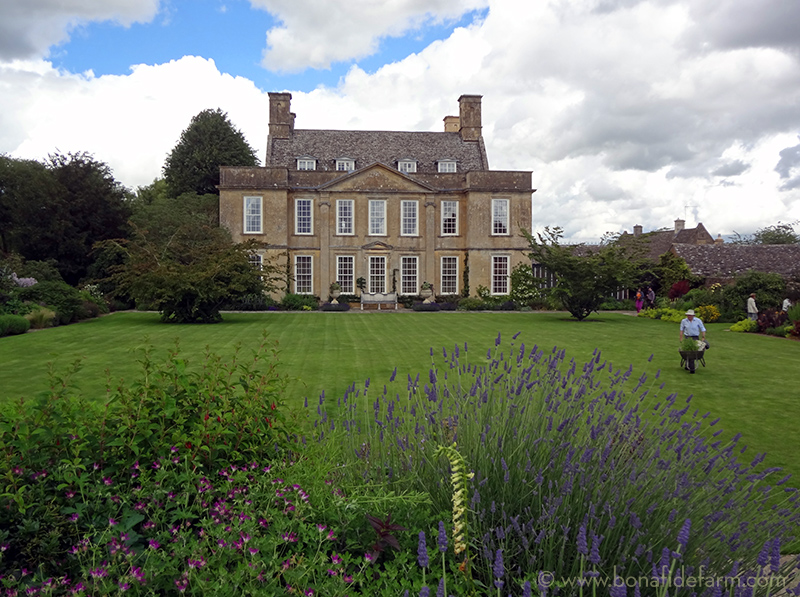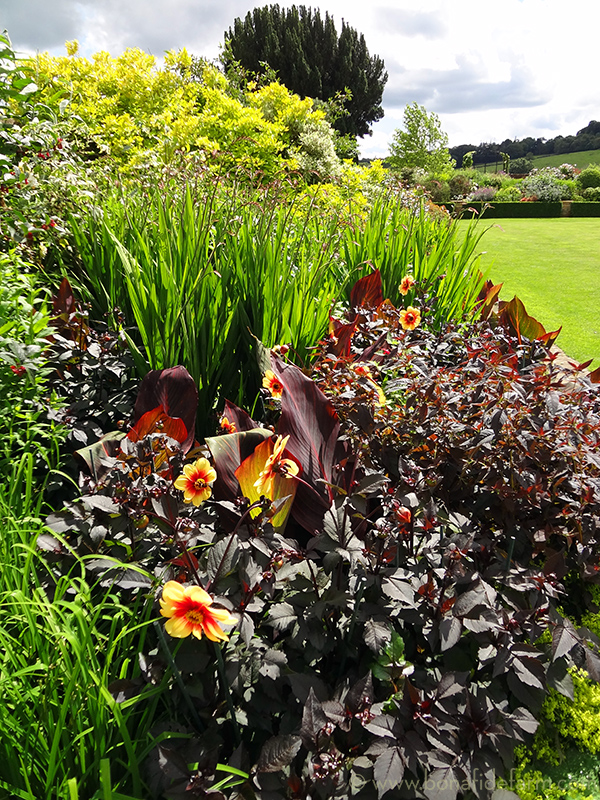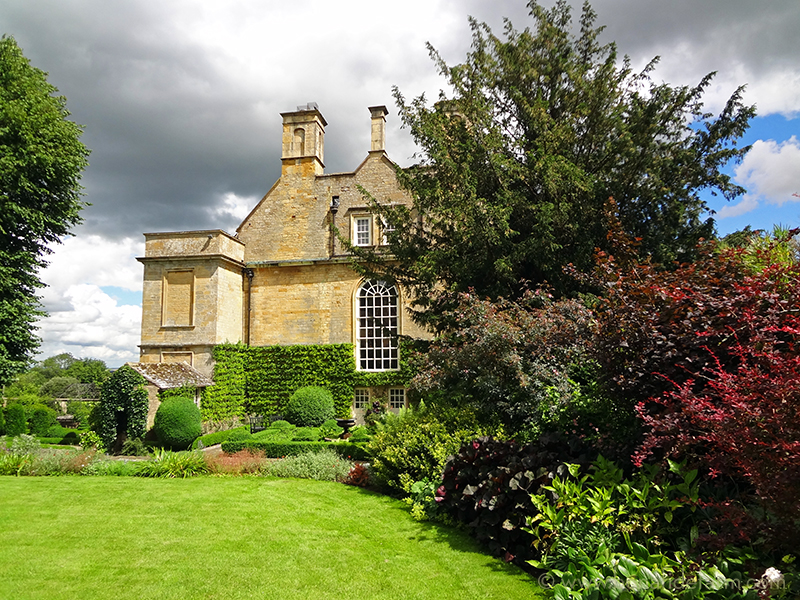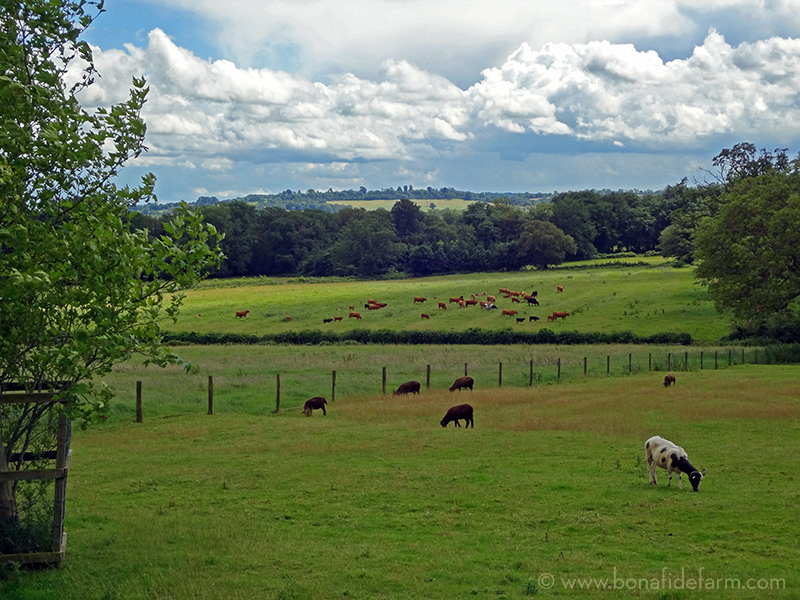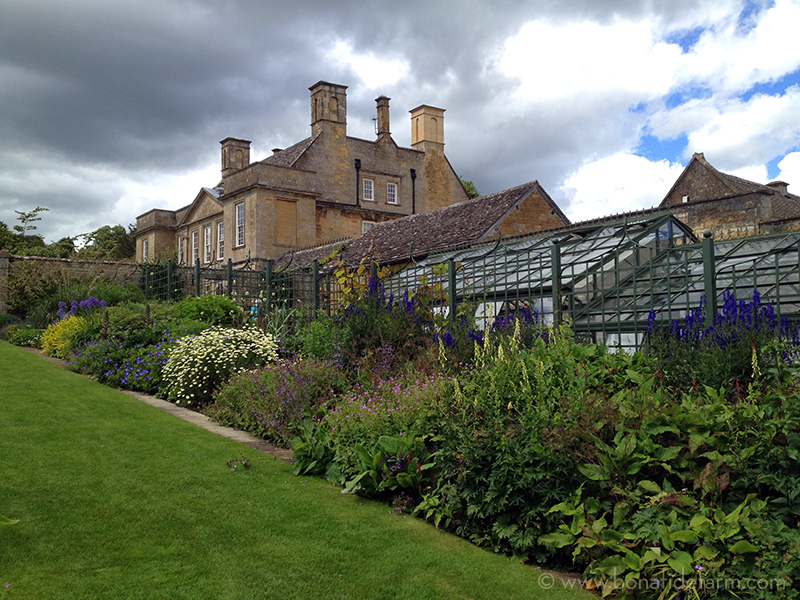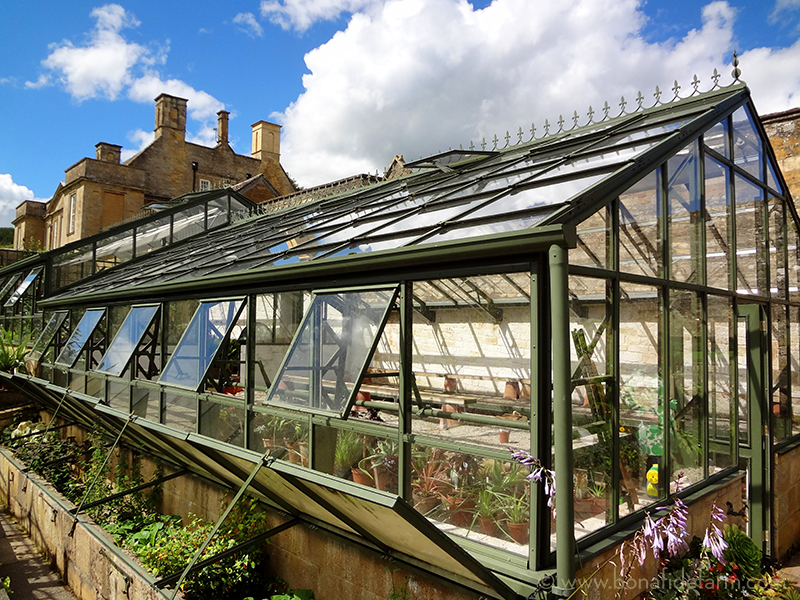It’s cold, dark and raining—you know, typical winter—and I’m seriously missing hours spent in the garden, not to mention the antidepressant effect of playing in the dirt. I really liked writing about the High Line a few weeks ago, and it made me realize that I have untold stories of other equally wonderful gardens. Because of that, and because nobody wants to read a post on how I’ve spent the last two days regrouting my shower, let’s get out of here and find something pretty with a short series on some of my favorite gardens that I’ve visited in the past few years.
First we’ll go to England and visit Bourton House, right in the beautiful Cotswold countryside near Morteon-in-Marsh. I stayed in this area for a couple of weeks in July, 2012, and took these photos then.
A bit of history from the Bourton House Web site:
Built on monastic lands, Bourton House and its Brewhouse, Stables and Coach House have created a courtyard since the late 16th century.
The house itself was rebuilt as a foursquare Jacobean house by the eminent lawyer, Sir Nicholas Overbury in 1598. At the beginning of the 18th century, the then unfashionable house was once again rebuilt on the earlier footprint by Alexander Popham, the grandson of a Cromwellian general. The house was taken down to its lower ground floor but the whimsical towers retained, the slits replaced by generous Georgian sash windows. The architect remains unknown. This setting has remained unchanged for three hundred years.
The lands originally belonging to the manor were sold in 1851 by Sir James Buller East MP, to the neighbouring Sezincote estate. Today Bourton House is surrounded by its immediate three-acre garden and a seven acre walled pasture, now given over to specimen trees and sculpture.
In 1953 the house and land were sold at auction and there followed a quick succession of owners, six to be exact, until 1983 when the house was acquired by Richard and Monique Paice.
The ornamental garden with its 18th century raised walk overlooking the rolling Cotswold hills; the original kitchen garden and orchard have been transformed in the past twenty five years. This achievement was recognised when Bourton House Garden received the prestigious HHA/Christie’s GARDEN OF THE YEAR (2006) award.
In 2010, the house was sold. The new owners have decided to keep the Garden open to the public with the active help of Head Gardener Paul Nicholls and Assistant Gardener Jacky Rae. Paul and Jacky have been responsible over many years for turning vision into reality and creating the wonderful garden seen today.
I was really impressed by the use of contrast in the Bourton House garden. As you can see in the two photos above, plants with dark foliage (dahlia and canna up above, and barberry and some other now-unidentifiable things below) are used to break up the swaths of pure green plants and grass. The dark plants create the effect of shadow even in full-sun exposures, and increase the visual depth of the borders.
The estate is surrounded by pastures filled with sheep and cows. It was lovely to hear their soft grazing noises while walking the grounds, and they’re very pretty lawn ornaments! Although I know firsthand that the day-to-day caretaking of livestock can often be the very opposite of bucolic, it was nice to dream a bit and aesthetically appreciate these animals without having to worry about their care.
I was impressed by how dynamic the clouds, sky and weather were in England during my visit. You can see in this series of photos, taken in just a couple hours, that the sun moved in and out from behind the clouds. Rain came and went as showers passed by. This made photographing fun and challenging, and the skies were never boring. It also made everything green, green, green! Just looking at these photos is already helping to alleviate my winter doldrums!
The beautiful glass house wasn’t full as it was high summer in England when I visited, but I can imagine how wonderful that space would be when used to start seedlings and extend the season into fall. Cold frames, below, are built up against the foundation of the glass house and are open to the sun. I love how the more modern glass house is incorporated into the ancient compound without it feeling intrusive or out of place. It’s a good lesson in proper scale and the wonderfully camouflaging properties of dark green paint.
Up next: We examine the Bourton House garden in closer detail, and step inside a gorgeous 16th century tithe barn.

